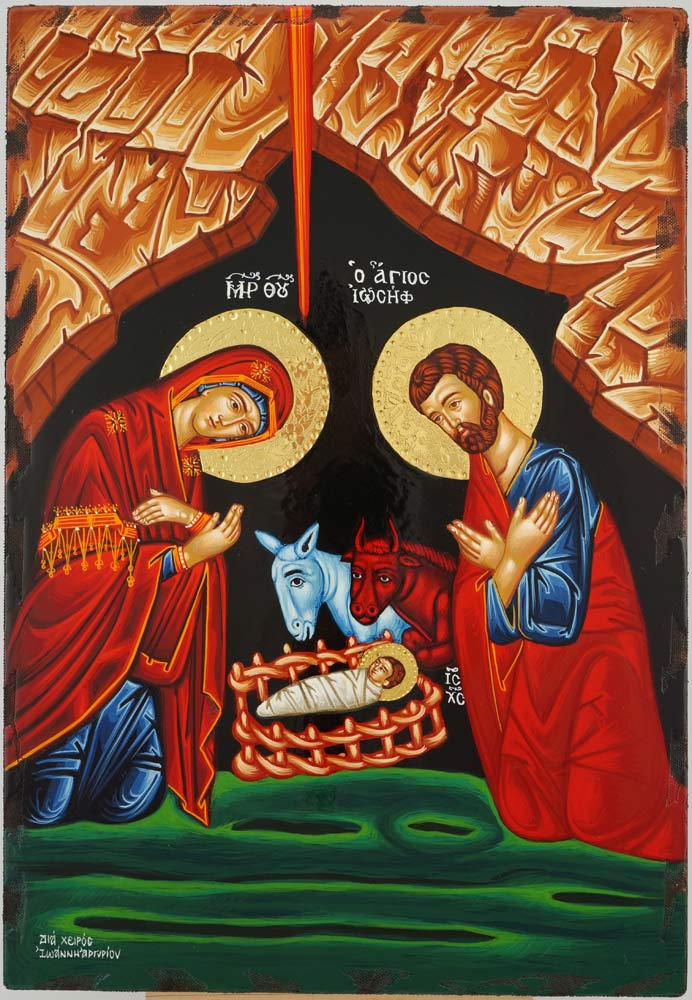What Exactly is "Glory"?
“Now the Word became flesh and took up residence among us. We saw his glory – the glory of the one and only, full of grace and truth, who came from the Father.” John 1:14
As I looked at today's verse, I was stopped by the word, "glory". That's one of those church words that we use and never really think about the meaning of like "hallelujah," and "amen". I started by thinking about what I understood it as, then I looked it up in a few places, and finally I sat back, took it all in, and settled on an understanding.
What do you think of when you read or hear the word, "glory"? For me, some of it had to do with a shining brilliance. I think artists had a similar concept as they often paint pictures of the nativity or other Biblical stories with halos around the characters' heads. As I continued on this thought path, however, I realized it had to be more than that. I grew up on a prison island, McNeil, and my mom used to say it was great living there because you knew who all the bad guys were because they wore orange. If glory worked in the reverse of this, you would know who all the good guys were because they'd be walking around with halos! So what else, besides a physical manifestation, could glory entail? The Bible talks about "Solomon in all his glory," so it's not just a God thing. Oh, and I don't think he was glowing either! Another translation uses the word, "splendor" here. That would make me think of his finery, the gold that adorned the temple, his palace and wealth. But, again, Jesus' family was poor so this probably isn't what it's referring to either. So, I looked it up.
On the Blue Letter Bible site, they give you lots of tools, including a lexicon where you can look up the meaning and usage of specific words. When I looked up the word, "glory" used in this verse, I felt accomplished when I saw their definition involving, "splendor, brightness," and then I started to see some more depth to the word when I saw, "opinion, estimate, whether good or bad concerning someone," and more specifically, "majesty; a thing belonging to God". Next, it talked about majesty with regards to, "a thing belonging to Christ; the kingly majesty of the Messiah, the absolutely perfect inward or personal excellency of Christ; the majesty". Now I could see myself spinning out as I start to look up "majesty," "excellence," and more, so I switched over to my old faithful, the Webster's 1828. Here it defined "glory" as, "1. Brightness; luster; splendor." This brought me back to the shiny dilemma until I saw further down, "In this passage of Peter, the latter word glory refers to the visible splendor or bright cloud that overshadowed Christ at his transfiguration. The former word glory though the same in the original, is to be understood in a figurative sense." So now we're speaking figuratively instead of literally. Take the halo off of Jesus and make Him look like a regular guy. The other definition that helped this make sense to me was number, "8. The divine perfections or excellence." Jesus was perfect, sinless. He did nothing that would make him deserving of death, much less death on a cross. This sinlessness was His glory.
So, taking all this together, I came to understand that glory, in this context, refers to the fact that Jesus came from, and was Himself, God. He possessed God's majesty. This didn't exhibit itself physically, with the exception of the experience on the Mount of Transfiguration, and possibly when He was baptized, but it was evident in the way He behaved, the way He spoke, the way He loved. Just like you cannot see the wind, but you know that it is there by the effect that it has on the leaves, or maybe even the limbs falling from the trees as happened at our house last night, you could not see Jesus' glory when he walked on the Earth, but you could "see" it in what He did and said and how people were affected by Him. This is the figurative sense that Webster was talking about.
Here's the Thing: It's worthwhile sometimes to slow down and take a minute to understand the meaning of what we're reading and not always discern by context or assume. I will understand this word differently when I read it from now on and I think I might see Jesus a little differently too.







Comments
Post a Comment